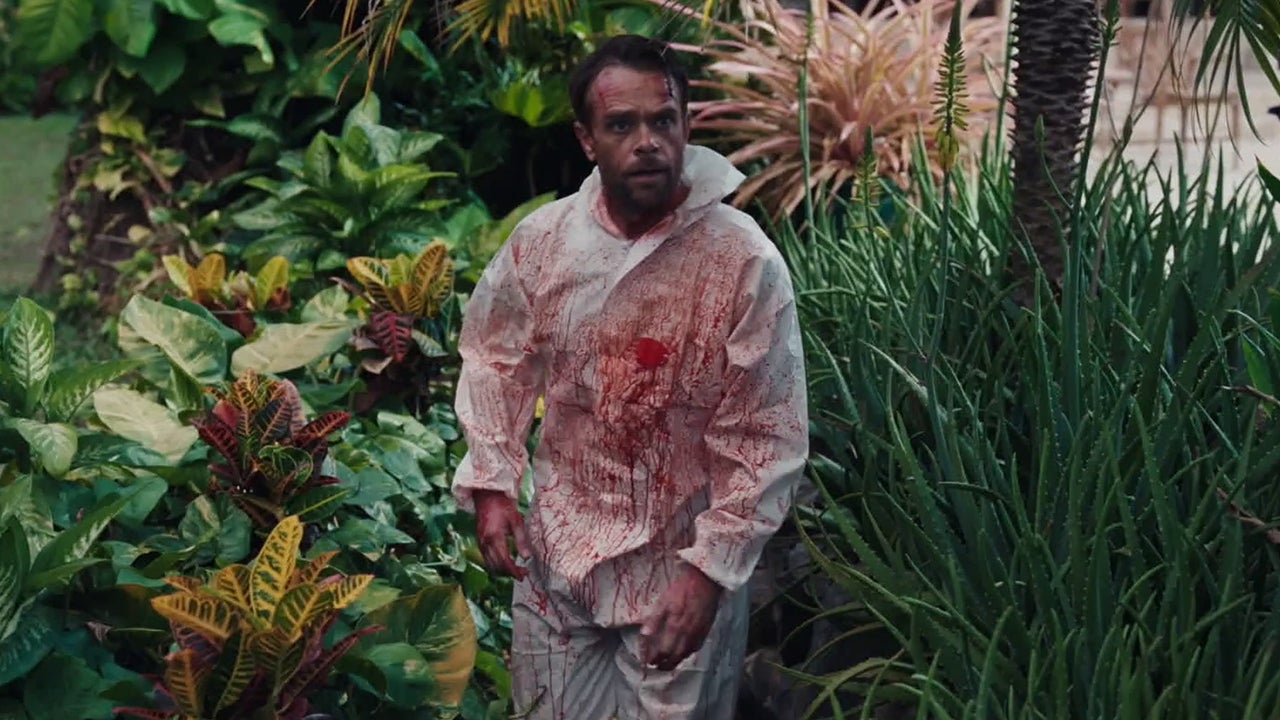“What You Wish For” marks a compelling return to form for Nick Stahl, whose career has seen its share of peaks and valleys. In this psychological thriller, Stahl delivers one of his most nuanced performances in years, reminding audiences of the raw talent that first captured attention in films like “In the Bedroom” and “Terminator 3.”

On the review aggregator website Rotten Tomatoes, 81% of 37 critics’ reviews are positive, with an average rating of 7.3/10.[11] Metacritic, which uses a weighted average, assigned the film a score of 66 out of 100, based on 7 critics, indicating “generally favorable” reviews.
The film centers on Daniel Reed (Stahl), a reclusive writer who returns to his small coastal hometown following his father’s unexpected death. What begins as a simple matter of settling an estate quickly spirals into something darker as Daniel discovers a mysterious object among his father’s possessions—an antique music box that seems to manifest desires in unpredictable and increasingly disturbing ways.
Director Marion Cole crafts a slow-burning atmosphere of dread that permeates every frame. The fictional town of Port Haven feels authentically lived-in, with its foggy shores and weathered buildings serving as the perfect backdrop for a story exploring the dangers of unfulfilled longing. Cinematographer Theo Liu employs a desaturated palette that gradually darkens as Daniel’s wishes pull him deeper into moral compromise.
Stahl’s performance is the undeniable anchor here. His portrayal of Daniel balances vulnerability and menace with remarkable precision. There’s a haunted quality to his eyes that speaks volumes about past traumas, making his character’s descent into obsession feel tragically inevitable rather than contrived. When Daniel begins using the box’s power to manipulate his childhood crush Emma (played with quiet strength by Michelle Monaghan), Stahl manages to make him simultaneously sympathetic and disturbing.
The supporting cast provides solid foundations, particularly Vera Farmiga as Daniel’s estranged sister Claire, whose skepticism serves as the voice of reason until she too becomes entangled in the box’s influence. Their scenes together crackle with unresolved tension, decades of family history communicated through glances and carefully chosen words.
The screenplay by Jonathan Mills excels in its exploration of grief as a catalyst for destructive desire. Daniel’s wishes begin innocuously enough—reconciliation with old friends, romantic connection, professional success—but each manifestation comes with unintended consequences that force him to confront his own moral boundaries. The film raises provocative questions about what we truly deserve versus what we crave.
However, “What You Wish For” stumbles in several key areas. The rules governing the music box’s powers remain frustratingly inconsistent, with limitations that seem to shift according to plot convenience rather than internal logic. This undermines some of the narrative tension, particularly in the third act when stakes should be at their highest.
Additionally, a subplot involving the town’s history and previous owners of the box feels underdeveloped. Tantalizing clues are scattered throughout but never coalesce into satisfying revelations. These missed opportunities for deeper mythology leave the film feeling somewhat incomplete despite its compelling central premise.
The pacing also presents issues, with the middle section dragging considerably as Daniel tests the box’s capabilities through increasingly mundane wishes. Some judicious editing could have tightened this section without losing essential character development.
The film’s ending deserves special mention for its bold ambiguity. Without venturing into spoiler territory, Cole resists the temptation to moralize or offer easy answers. Instead, the conclusion leaves viewers to contemplate their own relationship with desire and its potential costs—a refreshingly mature approach that respects audience intelligence.
Mark Isham’s subtle score enhances the atmosphere without overwhelming it, using minimalist piano motifs that grow increasingly discordant as Daniel’s wishes become more corrupting.
While “What You Wish For” doesn’t quite reach the heights of similar psychological thrillers like “The Gift” or “Frailty,” it offers enough originality and emotional resonance to distinguish itself in the genre. Stahl’s committed performance alone makes it worth watching, serving as a reminder of what a compelling screen presence he can be when given material worthy of his talents.
Despite its flaws, the film succeeds as a meditation on how our deepest wishes often reveal uncomfortable truths about ourselves—and how the line between desire and obsession can blur with frightening ease. For those willing to overlook some narrative inconsistencies, “What You Wish For” offers a thoughtful exploration of the human condition wrapped in an effectively unsettling package.


